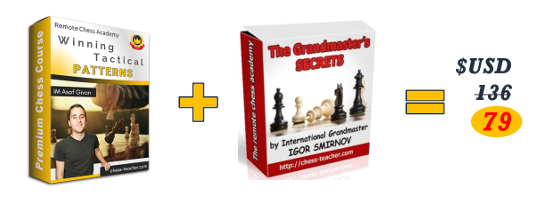

I was like wait, what?! I thought that the bishop was the one piece I was developing to perfection but no, it was back to the drawing board. Then it happened, my game started improving, I began playing higher rated players and I just couldn’t hang.Īfter evaluating my games, I realized that my biggest issue (because I have countless chess issues) was that I wasn’t developing my bishops correctly. In the beginning, this was the piece I loved, while I struggled with not getting whacked by my opponents knights and never used my rooks correctly. This next part might be a bit strange but I also felt it possessed an admirable elegance and gracefulness. It seemed to me that the movements were easy to understand and predict. When I first started chess I had an infatuation with the bishop. What I do have, is a better understanding of the relationships between pawns, pieces and myself. I have completed watching lesson 4 but need to continue reviewing it until I completely understand everything. I previously left off with GM Igor Smirnov’s course The Grandmaster’s Positional Understanding. I’m back from the holidays and am seriously studying chess, again. I took a quick look at the lesson and it seems to have details on using whatever pieces you have preserved or are stuck with. I will soon begin Lesson 4, How to use your pieces in an end game. I also feel that I’ve reached a good place to resume studying. At the time of writing this, I have completed 50 games on and have obtained my highest rating of 1156. I like to study a bit and then practice everything until I have a solid~ish grasp on the new concepts. I have completed only three of them but what a difference it has made. There are a total of 8 lessons in this course.

WOW! Once again it was just what I needed and once again, it was chock-full of amazing information. I needed to change my endgame attitude so, I started studying GM Smirnov’s course An Endgame Expert. It was slow and the board seemed like nothing but an endless bunch of empty spaces. I started struggling in games played against higher rated players. With this new knowledge, I was able to increase my rating but then it happened, again. Not only did it help me with my bishop issues but I was also pleasantly surprised at how much I learned about pawns. Since then, I have completed the course and it has made an enormous difference in my playing abilities. You can read my pupils’ feedback HERE.In my last post, I was studying GM Igor Smirnov’s course The Grandmaster’s Positional Understanding to develop better relationships with my bishops and various other pieces. Mohammed Al Hamed, TARRAF Tarraf, Will Clayton and many others. So far I’ve had a lot of successful pupils, among them: Keith MacKinnon, Robert Kent, Justin Yu, Antonio Mendonca, Christopher Wright, Josh Rofrano, Pierre Kurdy, Shk. I have now obtained a Master’s degree in psychology and made some more improvements in my chess educational system. I believe it will help other people to save the significant time and alot of expenditure on futile efforts, and enjoy fast progress. Based on my experiences, I’ve decided to share this important knowledge and skills with other people, who want to get better in their own chess development. I was very happy that after a long period of hard work, everyday training and huge efforts, I had learned the right way to train. My chess educational system corroborated its effectiveness in practice! My chess results then became much better – I increased my rating to 2505, and at the young age of 20, I became an International Grandmaster. After understanding some principles of a human’s thinking process, I grasped why the usual way of training is so ineffective.Ĭombining my chess experience and psychological knowledge, I started to create my own system of chess education. That’s why I took an interest in psychology: it explains how the human brain works. “How to make real progress and start to play chess better?” No one said to me: “I know exactly what to do and I can guarantee your progress”.įrom that time onwards, I began to think about the right way of training and improving myself. The coaches offered me loads of different training systems, but they didn’t know the answer to this simple question. But then it came to me that a lot of new information wasn’t making my game stronger! I trained hard for about 6-8 hours a day, had many coaches and read a lot of chess books. Then I started to play mainly in the adult tournaments, and realised that it wasn’t so simple to win there. At the age 13, after winning several international tournaments, I achieved the title of International Master. I enjoyed the game and my rating increased quite quickly. After a year of training, I attained the First category and became champion of Sevastopol (my native town) among schoolboys.


 0 kommentar(er)
0 kommentar(er)
